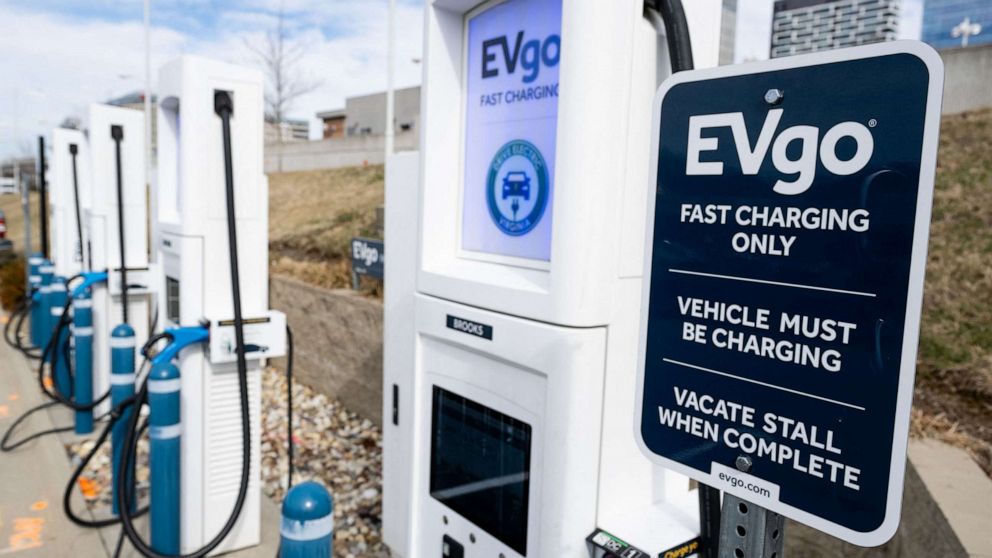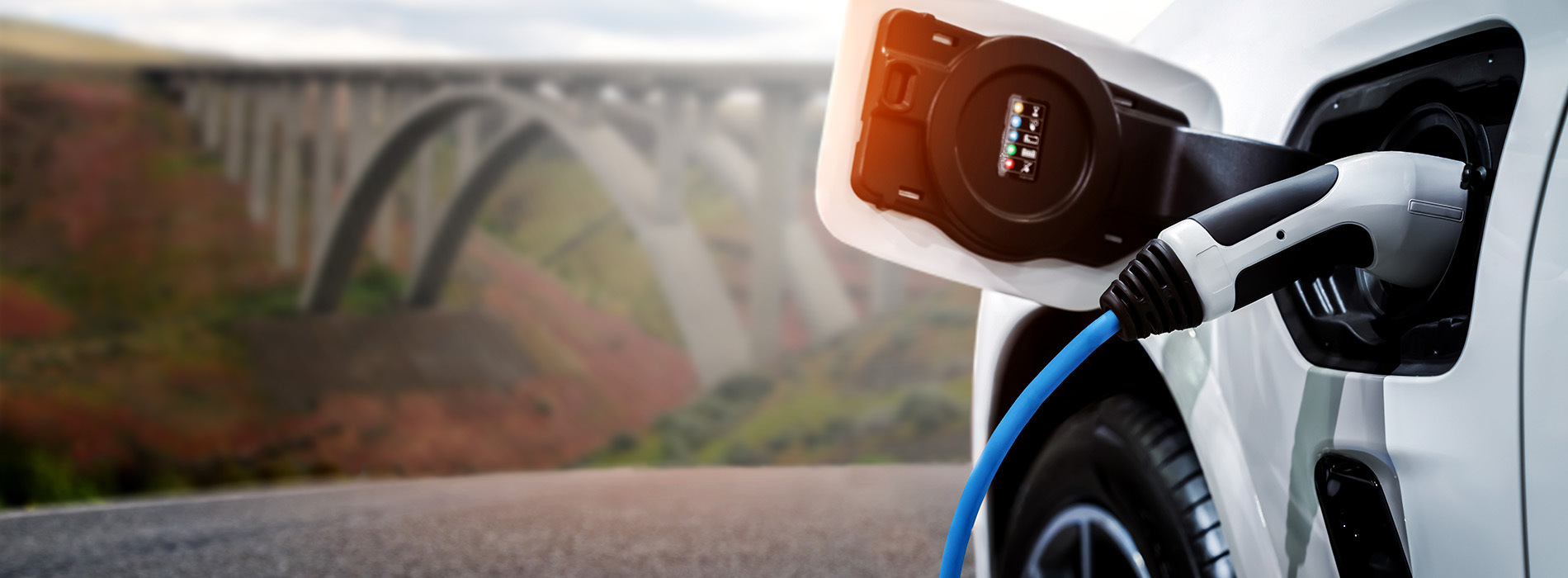The Future of Electric Vehicles and Why You Should Buy EV Charging news Now
The Future of Electric Vehicles and Why You Should Buy EV Charging news Now
Blog Article
Leading EV Charging News: Key Updates on Framework and Advancement

Recent Improvements in Fast-Charging Modern Technology

In addition, advancements in battery innovation, including improved thermal administration systems and greater power thickness batteries, complement fast-charging abilities. These developments mitigate the danger of battery deterioration during rapid charging, guaranteeing long life and performance for EV owners.
Additionally, the combination of clever charging services is boosting customer experience, allowing real-time monitoring and vibrant pricing designs. EV Charging news. This versatility allows drivers to optimize billing times and prices based on grid demand
As car manufacturers continue to invest in fast-charging networks, the cooperation between industry stakeholders is critical. Collaborations between billing terminal companies and automotive producers are leading the method for comprehensive protection, ultimately promoting an extra robust EV environment. These innovations are essential in sustaining the transition to sustainable transport.
Federal Government Campaigns for Billing Development
Federal government campaigns play an essential role in the expansion of electrical vehicle (EV) charging facilities, helping with the change to sustainable transportation. Numerous federal and state programs are being implemented to boost charging accessibility, reduce the financial worry on consumers, and advertise the fostering of electrical cars.
Notably, the U.S. federal government has assigned significant financing through the Infrastructure Financial Investment and Jobs Act, which sets aside $7.5 billion for EV charging network development throughout the country. This funding is targeted at releasing hundreds of brand-new charging terminals, particularly in underserved locations, thus attending to array anxiousness amongst potential EV customers.
Additionally, various states are passing regulations to enhance the allowing procedure for billing station installments, which is critical for increasing implementation. Motivations such as tax obligation credit ratings and discounts for both customers and organizations are additionally being presented to encourage the setup of charging framework.
Additionally, public-private partnerships are increasingly coming to be a focus, leveraging private investment to match government financing. These efforts underscore a collective technique important for building a extensive and reliable EV billing network, eventually contributing to a greener and even more lasting future.
Innovative Battery Solutions Enhancing Performance
Changing the landscape of electrical lorry (EV) modern technology, ingenious battery remedies are dramatically improving performance and performance. Advancements in battery chemistry, especially with lithium-sulfur and solid-state batteries, are causing raised energy density, which enables longer ranges and faster charging times. These new battery types have the potential to exceed conventional lithium-ion batteries by supplying higher capabilities while decreasing weight, therefore enhancing overall automobile performance.
Moreover, developments in battery monitoring systems (BMS) are maximizing energy usage and prolonging battery life-span. Smart algorithms keep track of battery health and performance, enabling real-time changes to billing and releasing processes. This not only enhances the performance of the battery yet additionally makes sure a much more lasting and dependable energy source for EVs.
Moreover, the combination of reusing modern technologies is addressing the environmental effect of battery production and disposal. Advancements in second-life applications for EV batteries are facilitating their use in energy storage space systems, adding to a circular economic situation.
As these innovative battery services remain to develop, they guarantee to change the EV market, making electrical vehicles much more attractive and obtainable to a more comprehensive target market while sustaining worldwide sustainability goals.

Cooperation In Between Automakers and Charging Networks
Identifying the critical demand for a robust charging framework, car manufacturers are progressively teaming up with billing network carriers to enhance the EV ownership experience advice (EV Charging news). These partnerships intend to create a smooth billing ecological community that benefits customers and supports the shift to electrical automobiles
Significant vehicle brand names are signing up with forces with established charging networks to broaden their charging station coverage, guaranteeing vehicle drivers have access to reputable and practical charging options. Collaborations with networks like ChargePoint and Electrify America enable automakers to incorporate charging services directly right into their vehicles' navigation systems, assisting users to the closest terminals and offering real-time schedule updates.
Moreover, these cooperations usually lead to the growth of fast-charging technologies that dramatically minimize the moment required to charge an EV. By merging sources and knowledge, car manufacturers and charging networks can introduce faster, creating More Info options that fulfill the expanding need for electrical mobility.
Additionally, joint campaigns might also lead to more standard charging procedures, which can reduce customer complication and promote more comprehensive EV adoption. Overall, these tactical alliances are crucial in building a efficient and user-friendly billing facilities that meets the requirements of an expanding electrical lorry market.
Challenges Dealing With EV Billing Infrastructure
As the electrical automobile market remains to expand, a number of difficulties are appearing that prevent the advancement of an extensive billing facilities. One of the main obstacles is the insufficient variety of charging stations, especially in underserved and rural urban locations. This void develops variety anxiousness among potential EV purchasers, hindering them from making the switch.
In addition, the lack of standardization in charging modern technology makes complex the framework landscape. Variants in plug types and charging speeds can create confusion for users and increase functional intricacies for charging network drivers. Moreover, the assimilation of billing terminals into existing electric grids poses considerable obstacles. Numerous regions encounter capacity restrictions, calling for considerable investments in grid upgrades to suit increased demand.
Another pushing issue is the high expense connected with the setup and maintenance of billing terminals, which can be an obstacle for both public entities and private services. Governing obstacles and zoning restrictions can delay the release of charging infrastructure, hindering development in expanding crucial solutions. Dealing with these challenges will be crucial for fostering a durable EV environment that sustains the transition to lasting transportation.
Conclusion
In conclusion, the ongoing advancements in EV billing technology, supported by substantial federal government initiatives and ingenious battery options, are important for the expansion and performance of look at here now electrical car framework. Cooperations between automakers and billing suppliers additionally improve terminal insurance coverage, attending to the expanding demand for accessible charging alternatives. Regardless of difficulties that continue within the EV charging landscape, these advancements signify a positive trajectory towards a much more reliable and sustainable electric car environment.
Innovations in billing infrastructure have actually led to the growth of ultra-fast chargers qualified of delivering up to 350 kW of power, significantly reducing charging times. Variants in plug types and charging rates can create complication for individuals and raise operational intricacies for billing network operators.In conclusion, the ongoing innovations in EV charging innovation, supported by considerable government efforts and ingenious battery options, are essential for the growth and effectiveness of electrical car infrastructure. Partnerships in between automakers and charging service providers better boost terminal coverage, attending to the growing demand for accessible billing choices. Regardless of challenges that continue within the EV charging landscape, these advancements indicate a positive trajectory in the direction of an extra reliable and lasting electrical car community.
Report this page